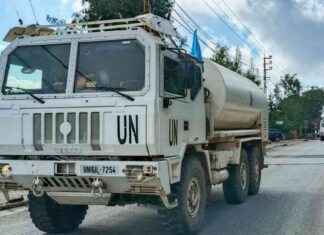The indian Government has decided to suspend the rescue of the body of John Allen Chau, the preacher, american 26-year-old who was attacked by aborigines of the Sentinel of the North 11 days ago, according to has informed this Tuesday the BBC. The u.s. citizen died from the arrows launched by members of the tribe that inhabits this island in the Gulf of Bengal, according to the verdict of the fishermen that moved to Chau to this remote location that forms part of the archipelago in the indian Andaman and Nicobar.
“In the early days, several attempts were made to recover the body after the members of the tribe were seen to be dragging. We know the direction in which it was taken, but not the exact place [where you left the corpse],” said an official of india, under anonymity, to the british network. The official also has assured that the indian authorities have sent Tuesday a boat to the area, only to monitor the situation, before suspending the mission.
During the last few days, the police had hired another boat and a helicopter to inspect the vicinity of Sentinel of the North, as part of the investigations in course after registration, the murder of the preacher of the gospel. The last rescue attempt took place on Saturday when a boat approached within 400 metres of the coast. The boat backed away finally after to catch a glimpse of several members of the tribe on the shore. The indian authorities are afraid to create a conflict with the approximately 200 members of the tribe preneolítica.
MORE INFORMATION
The fear spread to the aboriginal people hinders the recovery of the corpse of the missionary Andaman, trip to the lost isles
six fishermen and a seventh person who took Chau to the island have been arrested on the basis of a law of 1956, which protects the aboriginal peoples of the archipelago. This regulation restricts Canlı Bahis access to the area to tourists, although last August, with the aim of promoting tourism in the area, the Government of India has lifted the requirement to have a special permit to access the 29 islands, including Sentinel of the North.
Despite these legal changes, the police says that the presence of foreigners is strictly prohibited in the vicinity of Sentinel of the North. The activists allege lack of maritime control in the area and demand laws that protect the tribal community. Manish Chandi, a researcher in the Computer environment of Andaman and Nicobar, calls for regulations that limit access to these territories as “a lot of the richness of indigenous knowledge has been lost by intrusions, and by trying to integrate them into our way of life, which leads to the loss of their traditional environments”.
In recent days, activists, anthropologists and groups in defense of indigenous communities have been favoured to cancel the rescue operation of Chau at the risk of a violent impact between the Administration of india and the members of the tribe. “Similar efforts in the past have finished with the sentineleses trying to defend your island by force”, declared the director of Survival International, a well-known global organization and advocate for the rights of aboriginal groups.
The local experts have also supported the suspension of the rescue mission. In conversation with THE COUNTRY, Trilok Nath Pandit, former director of the Anthropological Study of India, centre of the Ministry of Culture, it is has been against any attempt to establish contact with the local tribe against their will. Pandit, the only living person of the first expedition which had the possibility of interacting with the sentineleses, insists that they are peaceful and only seek to defend themselves from a dominant group that they perceive as more powerful. In 2006, members of the tribe killed two fishermen indians that tried to enter their territory. After several attempts, the Administration was able to recover one of the corpses, while the other stays buried on the island.






